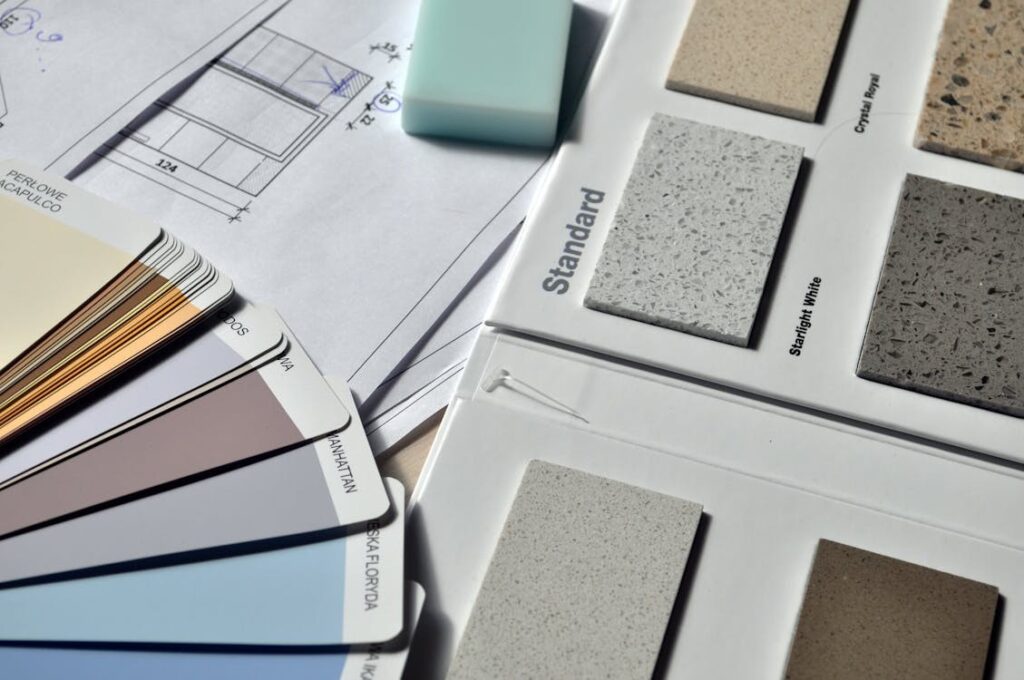A home renovation can reinvigorate your living space. But despite the initial excitement, the logistical side of things can start to feel overwhelming. After all, you’ll need to coordinate with a contractor, decide on materials, and make aesthetic decisions. Fortunately, it is possible to steer clear of major headaches with a little planning.
Stay with us to learn 13 smart moves you should make before beginning a home renovation.
1. Focus on Accurate Measurements
Do you know the measurements of the area you’re hoping to renovate? Before demoing a bedroom or even contacting a contractor, capture measurements of the walls and ceilings. Account for unique recessed areas or other architectural features. And be aware of doors that will need space to swing or general traffic patterns in your home. You don’t want to try fitting too much in a tight space in your kitchen, for instance, and disrupt the sense of flow.
2. Know Your Budget
Be clear on the maximum amount of money you can comfortably invest in your project. Look at your existing budget and know what is possible. Understand that scope creep can be a problem with renovations, meaning you’ll pay more than initially intended. It’s wise to add up to 20% more to the project total in case you encounter unanticipated costs.
3. Commit to Decluttering
When you start a renovation, messes are part of the process. But you can cut down on the messiness factor by removing unnecessary items from your home. Throw away or recycle items, or even try selling some. You’ll appreciate your transformed space more when it’s not cluttered with old belongings you don’t use.
4. Look into Storage Options
You may need to remove lots of furniture or other items temporarily during a renovation. While you may be able to stash some things in another room or a garage, you may need to seek short-term storage as an alternative space. Make sure to look for secure storage spaces that offer units sized to accommodate your belongings. You can rent storage near Clearwater FL, for instance, if you’re renovating a kitchen or bathroom.
5. Donate Old Items
You can give back to your community by donating items to local nonprofits. Try to schedule pickups so that you can have all items removed prior to the start of your renovation. You’ll make a difference for others by giving away your old items while clearing out space in your home.
6. Keep Supplies Organized
Renovations require materials, and you’ll likely have those delivered to your home in the days or weeks before the renovation begins. You don’t want to keep supplies scattered around your home. You can help your contractor and ensure a smoother renovation process by keeping supplies contained to the same area. Designate your garage or basement, for instance, as a holding zone for supplies.
7. Make Sure You Have Necessary Permits
Do you have the essential permits to do renovation work legally in your home? Don’t overlook this step in the preparation process. Your contractor should know what you need and be able to help you secure them.
8. Cover Furniture and Walkways
When you have work crews entering and exiting your home constantly, things can get messy. You don’t want dust and debris clouding the rest of your home during a renovation. That’s why it’s so important to cover nearby furniture and floors with tarps or paper. Check with your contractor to see if they will do this before starting the job. Otherwise, be proactive about doing it to avoid scuffs and grimy surfaces.
9. Keep Dust at Bay
Dust is an inevitable part of any construction project. Plan on accounting for dust by sealing off work zones. That way, you won’t have a dusty coating on your furniture near the work zone, and you won’t have as many dust particles circulating through your home.
10. Determine How Access Will Work
When will your contractor be showing up to start work? And will you be home or at work? You’ll need to establish a secure way for work crews to enter your home. A lock box can be a good option, and you may want to set daily timelines to avoid having work crews that stick around too late.
11. Create Temporary Stations
The thought of a shiny new kitchen can be pleasing, but you’ll need to find an alternative way to prepare food or coffee when that kitchen is demoed. Make sure you’ve planned a temporary station where you can toast your morning bagel or grab a cold beverage. If your bedroom is getting redone, set up an air mattress and critical belongings in another room.
12. Don’t Forget About Your Pets
Pets can feel scared and insecure when they hear loud noises from a work crew. Plus, you don’t want your cat or dog roaming around a worksite. Set up a room where they can feel comfortable with a bed, food, and some toys. Check in with them as often as possible, and make sure the room is secure.
13. Expect a Longer Project
Even the most well-planned projects can go longer than expected. You could encounter delays in materials shipments or have work crew members out sick. With these delays in mind, it’s best to expect that your project will take a little longer!
Prepare for Your Home Renovation
A home renovation can be a rewarding experience. Just make sure you’ve done some planning before the work crew arrives. Understand your budget limitations, declutter your space, and protect surrounding rooms. Make sure pets have a room away from the noise, and look into storage options for your furniture and other belongings. When you’re proactive about planning, you can help facilitate a smoother renovation project.

